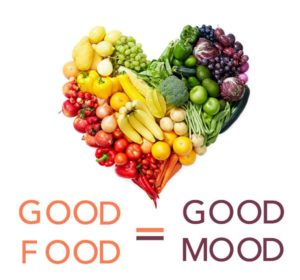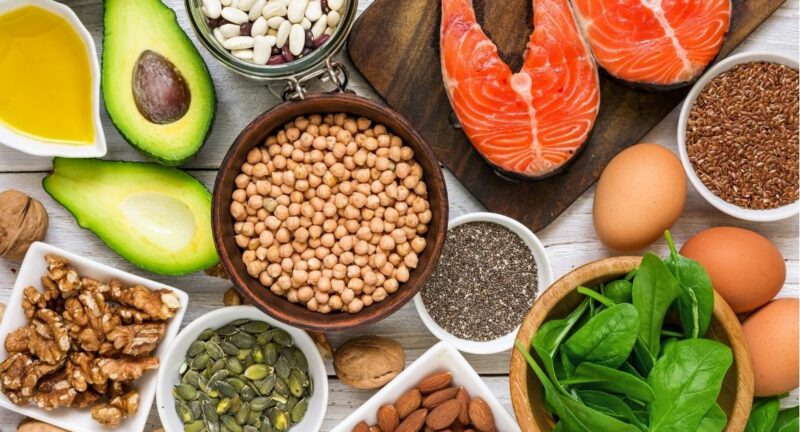

28 Foods to Decrease Anxiety and Depression & Enhance Positive Moods
July 31, 2018 by Counseling and Wellness Center of Pittsburgh food for anxiety, food for depression, food for mood 0 comments
Food & Mood Series by Liz Mckinney, CNS, Board Certified Nutritionist
“It is both compelling and daunting to consider that dietary intervention at an individual or population level could reduce rates of psychiatric disorders. There are exciting implications for clinical care, public health, and research” – editorial in the American Journal of Psychiatry https://doi.org/10.1176/appi.ajp.2009.09060881
Mood imbalances like depression and anxiety are on the rise in the U.S. In 2016, the National Institute for Mental Health estimated that 16.2 million Americans have experienced at least one major depressive episode and 42 million have an anxiety disorder of some kind. https://www.nimh.nih.gov/health/topics/depression/index.shtml Additionally, depression is the leading cause of disability globally. Traditionally, depression and anxiety are viewed as being caused by chemical imbalances, due to under production of our feel good neurotransmitters like dopamine, GABA, and serotonin. Lets explore how food is related to emotional health and how we can put ourselves at risk for developing anxiety or depression with our diet, as well as the good news of how diet can increase of mood, energy, and all around wellness.

Food For Depression
So what factors contribute to a drop in the production of neurotransmitters? Biologically, this question has a multi-tiered answer. First, genetics and epigenetics (namely, how our environmental exposures affect which of our genes become activated) certainly play a role in a person’s proclivity towards depression and anxiety. For example, a common genetic mutation called MTHFR has a big impact in how we activate the B vitamin folate in our cells. Those with this genetic mutation are more prone to depression because of folate’s role in making serotonin. But, we know that our genetics don’t tell the whole story. The second factor influencing the expression of our genes, are our mental and emotional stressors or triggers, this is the part that can be effected by our social supports and reduced with therapy. Social factors and cognitive perceptions contribute significantly to the onset of these common mood disorders.
The Standard American Diet, which is low in fiber, healthy fats and protein and packed full of cheap, convenient sugar laden foods means we have less of the amino acid building blocks we need to make GABA, serotonin, and dopamine. A second issue to consider is that poor gut health is directly linked to worsened mood disorders thanks to the two-way gut-brain connection. Intake of processed snack foods packed with sugar, flour, and trans fat are like pouring gasoline on the fire and promote overgrowth of pathogenic bacteria and yeast in our gut where up to 80% of our body’s serotonin is produced. Eating poor quality proteins or simply not enough further compound the issue because proteins are the building blocks for these important compounds that keep our moods stable. Grain fed, factory farmed eggs and meats and genetically modified crops are not only loaded with toxins and pesticides that alter our microbiomes, they serve to ramp up that low grade chronic inflammation. Finally, fiber intake has never been lower thanks to the standard American diet. Fiber rich foods serve as probiotics that feed the beneficial bacteria in our large intestine. Without fuel, the good “bugs” are more likely to die off, leaving room for the pathogenic species to flourish. Our bacteria send signals to our brains, so we want our good bacteria to dominate and send signals that promote brain health, not cause further chemical imbalances and inflammation.
Now time for the empowering news! The food we eat can also improve mood, and decrease symptoms of depression and anxiety. Food can be a kind of internal therapy, by nourishing organs, healing of stomach linings and then increasing energy and brain health, they have a huge impact on decreasing ones susceptibility to relapsing from mental health disorders.
Carnivores
- High quality proteins
- Cage-free Eggs
- Grass-fed Beef and
- Chicken raised without growth hormones or antibiotics.
Vegan or vegetarian
- Non-GMO soy
- Vegetable proteins like legumes, pea chia, or hemp.
- Fermented foods like kefir, kombucha, or sauerkraut which contain live organisms that populate the microbiome with beneficial bacteria.
The above mentioned foods promote emotional and physical health by keeping the gut happy and healthy. As a word of caution, avoid processed, packaged snack foods at all costs and focus on whole, unprocessed foods like promote a good mood. Here are some more delicious options to add to your daily diet that calm inflammation and support mood:
- Dark Chocolate (70% or darker)
- Vitamin B rich foods – eggs, raw dairy, grass fed beef, and organic chicken and turkey, leafy greens like kale or Swiss chard, and bananas
- Turmeric
- Red, Purple, and Blue Berries – Contain Vitamin C and other antioxidants
- Omega 3s – wild caught fatty fish (2 servings weekly), walnuts and flax seed
- Coconut oil
As a final note, understanding mood disorders is complex and the underlying factors multi-tiered. Everyone is unique and requires and individualized approach that takes into account genetics and epigenetics, mental and emotional health and diet and lifestyle. When all three are addressed, we are better able to address mood disorders and provide the best outcomes. If you want to learn more about health enhancing diets and what foods can support emotional and physical health, meet with a board certified and licensed nutritionist, our nutritionist, Liz Mckinney, CNS accepts Aetna and Blue Cross Blue Shield insurance as well as self paying clients.

Certified Licensed Nutritionist
anxiety certified nutritionist monroeville certified nutritionist pittsburgh Counseling and Wellness Center of Pittsburgh- Monroeville depression food for anxiety food for depression food for mood good bacteria gut health healing with whole foods inflammation mental health nutritionist probiotics therapy wellness whole foods
Related Posts
5 Foods to Ease Seasonal Affective Disorder
November 11, 2021
Seasonal affective disorder (SAD), better known as seasonal depression, can be...
28 Foods to Decrease Anxiety and Depression & Enhance Positive Moods
July 31, 2018
Food & Mood Series by Liz Mckinney, CNS, Board Certified Nutritionist “It...


